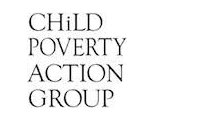
Child Poverty Action Group (CPAG) says we have a welfare system that is more focused on punishing, or teaching lessons, than helping people.
Government sanctions “offending beneficiaries” who do not obey stringent rules. “This is bad enough for the adults,” says CPAG’s Social Security spokesperson, Associate Professor Mike O’Brien. “But children can be hugely affected by the sudden cut to an already inadequate income. There are tens of thousands of children involved.”
CPAG challenges the Minister to provide information about the number of children affected by sanctions, for how long and with what effect. We do know that there is widespread social distress and high demands for food banks and budgeting services. With around half of all 165,177 sanctions being imposed on beneficiaries with an undisclosed number of dependants, the numbers of children affected could be well over 100,000.
In 2014 CPAG published a report which discussed the lack of clarity surrounding the data provided by the Ministry of Social Development (MSD) about the impact of benefit sanctions on children.
The data does not provide enough information about:
– the number of sanctions imposed by grade of sanction;
– the reason the sanction has been imposed;
– the number of clients with children who have had their benefits suspended or cancelled;
– how many children are affected by these suspensions and cancellations;
– the length of time the suspension/cancellation was active (and the number of children affected);
– a breakdown of these figures by age-group of the child, and region.
The sanctions are being imposed far too freely and largely for missed appointments. There is no evidence that sanctions on the scale of 70,000 a year actually improves outcomes for anyone let alone children caught up in them. Protecting vulnerable children is something the Government claims is a goal of welfare reform.
Sole parents, an already marginalised and stereotyped group are often unable to keep appointments: the car breaks down, the child is sick, the traffic is impossible, the school demands and so on. Financial struggles lead to physical struggles which may mean that a day is unpredictable and hard to manage, especially for a sole parent with young children.
“The purpose of welfare has been lost in a crazy obstacle course, especially for parents who need all the support, encouragement and financial stability we can muster to enable the vitally important work they do for society by nurturing and investing in their children,” says Associate Professor O’Brien.




